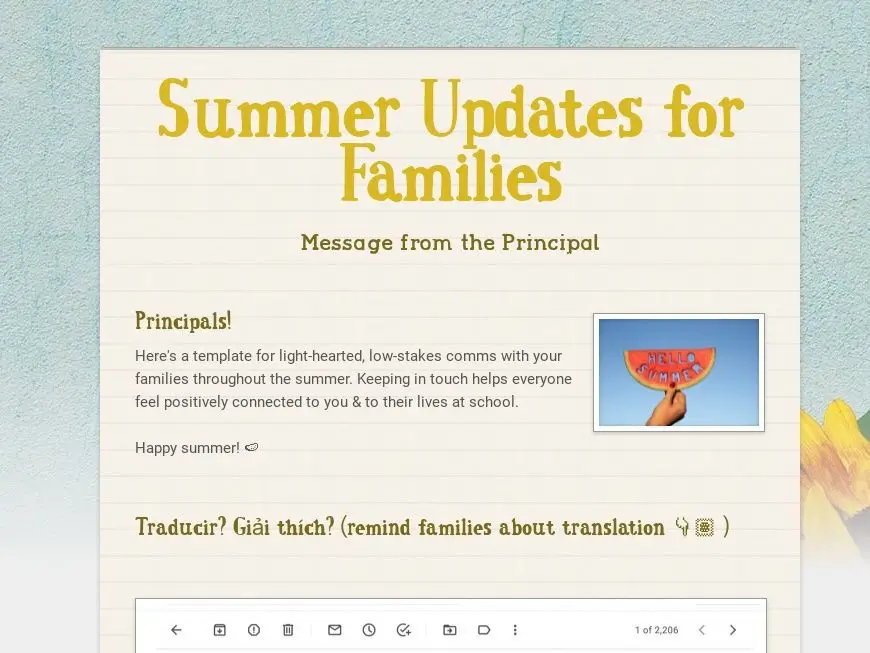2 Key Reasons Consistent School Updates Make Educators’ Lives Easier

Staying connected with parents through consistent school updates is more than just good practice—it’s a crucial tool for educators. Effective communication helps parents stay engaged in their child’s education, which directly improves learning outcomes. The more informed parents are, the better they can support their child’s learning, whether that’s ensuring they’re prepared for a big test or encouraging healthy study habits at home.
While sending out a weekly school newsletter can sometimes feel like you’re whistling into the wind, every update you provide is valuable. Sharing student accomplishments, upcoming events, classroom procedures, and even learning goals means you’re ensuring parents stay in the loop. And those consistent updates are accomplishing the most important task that leads to student success: engaging parents in their child’s education.
1. The More You Communicate, the More Parents Know About School Life
It may seem obvious, but regular communication with parents plays a critical role in student success. The more parents know about their child’s school life, the more trust they build with teachers and school administrators. This trust creates a positive feedback loop that leads to improved student performance, attendance, behavior, and engagement. And what’s the result for teachers? Improved job satisfaction and reduced stress.
When parents are actively involved in their child’s education, they’re more likely to reinforce positive behaviors, help with assignments, and support learning from home. In fact, studies have shown that students with engaged parents are more likely to excel academically, have fewer behavioral issues, and demonstrate better social skills. This relationship-building between parents and educators fosters a collaborative environment that benefits everyone involved.
For instance, according to Edutopia, schools that consistently involve parents through newsletters, parent-teacher conferences, and regular updates see a measurable increase in student achievement. When communication is clear and frequent, it alleviates many concerns parents might have, and they feel more comfortable approaching educators with questions or concerns.
2. Builds Trust and Goodwill with Families and the Community
Consistent updates also help build trust and goodwill with families and the broader school community. By sharing weekly newsletters or progress updates, you’re showing parents and community members that you value transparency and their input. Even more so, if you’re soliciting feedback and incorporating it into your future communications, you’re creating an ongoing dialogue that strengthens those relationships over time.
This effort will pay off when you need to share difficult news—whether it’s about budget cuts, policy changes, or other challenges. Having built up a foundation of trust through regular updates, you’ll find that families and community members are more understanding and supportive when the time comes. In education, maintaining strong relationships can make all the difference in navigating challenges smoothly.
In addition, regular communication promotes community engagement. Local businesses, school boards, and other stakeholders are more likely to support initiatives when they feel well-informed and valued as part of the conversation. This community backing can lead to additional resources, fundraising support, and volunteer efforts that enrich the school environment.
How to Get Started with Consistent School Updates
To make sure your updates are both engaging and effective, start by using a consistent format for your newsletters. Ensure they include key sections like:
- Student Achievements: Highlight recent accomplishments to celebrate progress.
- Upcoming Events: Keep parents informed of important dates like school plays, parent-teacher conferences, and test days.
- Classroom Learning Focus: Share what students are learning each week to encourage parents to discuss lessons at home.
- Feedback Requests: Invite parents to share their thoughts or ask questions about specific school programs.
For even more tips on improving parent engagement, check out our blog post on effective school communication strategies.






